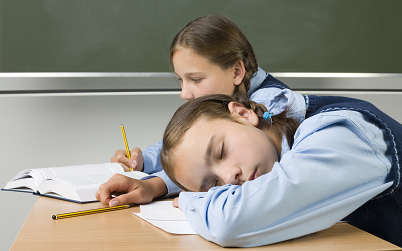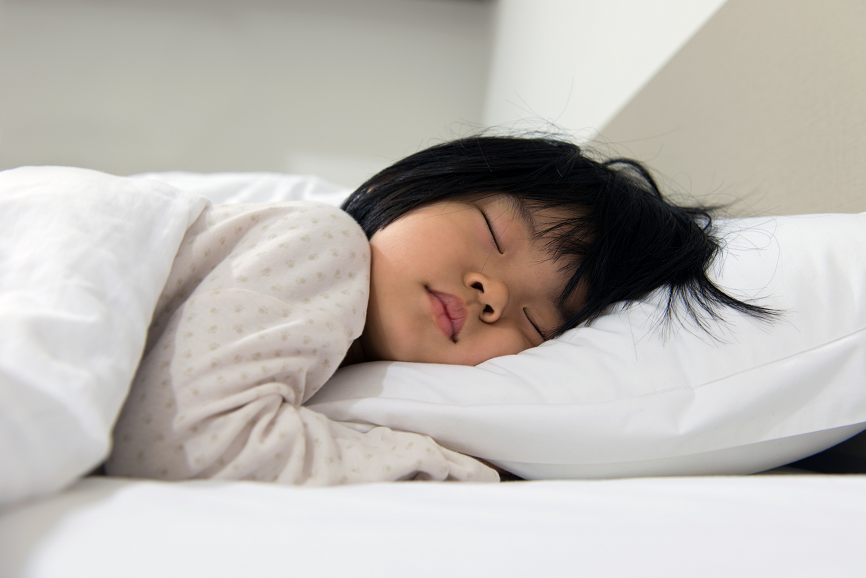Primary Times - the definitive what’s on and where to go family guide of activities and events for children of primary school age. Things to do with your kids during the school holidays including arts and craft activities, music and theatre for children, parties, competitions, days out, and family attractions along with term time drama schools, dance classes, after school clubs and sports activities. Things to do at a place near you!
A Good Night's Sleep
Recent research from the Sleep Council showed that more than a third (38%) of teachers said lack of sleep among youngsters is a daily problem for them. Plus, more than half (55%) of those questioned agreed that the brightest children in the classroom are the best slept and most wide awake.
sleep among youngsters is a daily problem for them. Plus, more than half (55%) of those questioned agreed that the brightest children in the classroom are the best slept and most wide awake.
Yet, it’s not just academic performance that can be affected by youngsters who stay up too late. More than four in ten (45%) of those polled said lack of sleep made young children more susceptible to colds and other minor ailments.
So how much sleep does a primary school aged child need?
Young children don’t often recognise that they are tired and can become fatigued very quickly. This usually results in a demonstration of fractious, weepy, clingy and irritable behaviour, which can be difficult to control. As children get older they are more likely to identify when they are feeling drowsy and will be less resistant to going to bed.
Children aged four to six tend to sleep between 10½ to 11½ hours a night, although most children of this age will have difficulty sleeping at some point. They may resist going to bed, may wake up in the night, may accidentally wet the bed and they may be scared of the dark.
As children grow the need for such lengthy sleep reduces and by the time the children are aged six to twelve they will need around 10 hours a night. Any sleep problems at this age are likely to be linked with worries at school or with friends or other family members.
Common causes of childhood sleep disruption -
Nightmares: Although very common, children may be deeply distressed by nightmares or night terrors and have trouble in explaining their fears. The key to resolving repeated episodes is through reassurance. To settle a child, don’t wake him or her up, just talk softly, reassure and comfort them. For tips on dealing with nightmares in children visit www.sleepfoundation.org and search for ‘Children and Bedtime Fears and Nightmares’
Bedwetting: Bedwetting is a common occurrence in childhood regularly affecting over half a million children and young people aged between 5 and 16. To help resolve the problem encourage the children to go to the toilet just before going to sleep and persuade them to drink regularly throughout the day. If the problem persists then make an appointment with the school nurse or bedwetting clinic to look at the options available and who can provide ongoing support. For help visit www.eric.org.uk
Establish a good sleep routine: The most effective way to combat any problems and create a good sleep pattern is to establish a regular slumber routine. After dinner encourage quiet play, followed by a bath.
Creating an ideal sleeping environment: Ideally, create the perfect sleeping environment for your child using blackout blinds or curtains where possible and a suitable duvet and bed covers for the time of year. The room temperature should be between 16-24°C.
using blackout blinds or curtains where possible and a suitable duvet and bed covers for the time of year. The room temperature should be between 16-24°C.
Use an appropriate bed and mattress for a child: Children need a correct sized bed with a firm supportive mattress. If your child has a bunk bed make sure it is safe and complies with the BS EN747 safety standards.
If your child inherited a second hand bed, and if finances allow, try to invest in a new mattress to provide the correct support for growing bones and muscles. The mattress construction should be either foam or sprung, and it should be supportive enough to hold the spine in correct alignment.
If a child’s health is starting to suffer as a consequence of sleep deprivation see a GP for more advice or see www.nhs.uk or contact The Sleep Council on 01756 792327 or visit www.sleepcouncil.org.uk
The Sleep Council’s golden rules on how to get a better night’s sleep:
- Keep regular hours. Going to bed and getting up at roughly the same time will programme your body to sleep better.
- Create a restful sleeping environment. Your bedroom should be kept for rest and sleep and it should be neither too hot, nor too cold; and as quiet and dark as possible.
- Take more exercise. Regular, moderate exercise can help relieve the day’s stresses and strains. Don’t exercise too close to bedtime or it may keep you awake!
- Don’t over-indulge. Too much food, especially late at night, just before bedtime, can play havoc with sleep patterns.
Good Night Sleep Guide for Children
The Sleep Council’s free ‘Good-Night Guide for Children’ booklet is filled with hints and tips for parents on how to help their children get a good night’s sleep. It can be downloaded from www.sleepcouncil.org.uk or requested by calling the leaflet line on 0800 018 7923.




